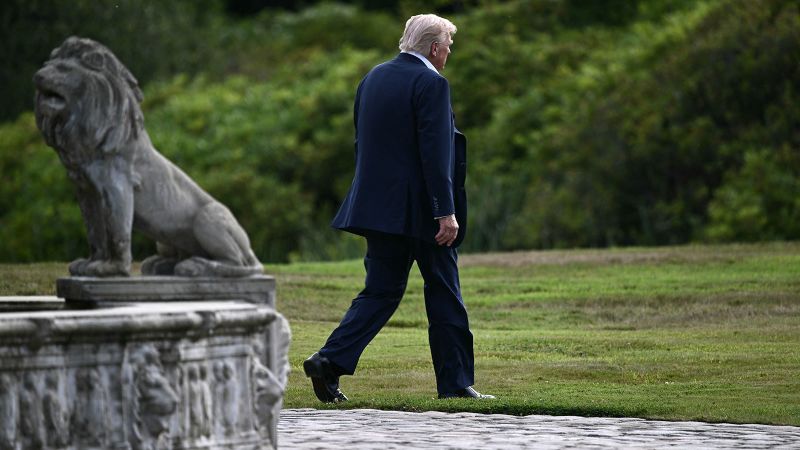In recent years, a significant shift has occurred within American conservative thought regarding the government’s role in business. The traditional belief, famously positioned as “the government that governs least governs best,” has long been a guiding principle for conservatives. It emphasized individual liberties and minimal regulatory interference, often leading to vocal opposition against any new legislation perceived as restrictive. This resistance was amplified in the realms of talk radio and podcasts, where commentators frequently derided bureaucratic overreach and business lobbyists took center stage, denouncing regulations and taxes viewed as excessive.
However, this narrative took an unexpected turn during Donald Trump’s presidency. His administration marked a departure from the conservative laissez-faire doctrine, as he frequently intervened in corporate affairs. Examples include orchestrating financial deals that directly impacted private entities, such as his agreement for the US to benefit from a portion of Nvidia’s sales to China, and openly targeting individual business executives with public criticism. Trump’s willingness to leverage executive power to influence companies and financial institutions illustrated a distinct contrast to both his party’s traditional views and the expectations of the business community.
Consider the case of the US Chamber of Commerce, which is recognized as the preeminent business advocacy group in the nation. In recent efforts to protect its constituents, the Chamber has engaged in litigation against government actions, such as suing a federal watchdog for attempting to limit credit card late fees and challenging Medicare price negotiations under the Biden administration as an overreach of power. Ironically, despite its historical advocacy for minimal government interference, the Chamber has been noticeably silent regarding Trump’s direct interference in private enterprise during his second term, raising flags within the conservative business community.
Similarly, the Business Roundtable—a powerful lobbying group representing numerous chief executives—has previously condemned presidential overreaches regarding taxation and environmental policies. However, under Trump’s administration, this group has also refrained from publicly criticizing the Republican leader’s increasingly authoritarian-like approach to capitalism, which many observers argue echoes elements of governance seen in autocratic regimes like those in Russia and China.
Although both advocacy groups have articulated concerns over Trump’s tariff policies, which potentially harm American businesses, there has been a conspicuous absence of opposition to his broader, more direct assaults on the principles of free enterprise. Surprisingly, neither the Chamber of Commerce nor the Business Roundtable responded to multiple inquiries regarding their stance on these issues, further highlighting their reluctance to engage with the realities of Trump’s interventionist strategies.
Trump’s unorthodox governance has unsettled many within Congress, the investment community, and even legal experts. As noted by Philip M. Nichols from the Wharton School, businesses operating in this climate now face unquantifiable risks that demand caution over bold actions. This climate fosters a survival mentality akin to wildlife in nature, where caution prevails in the face of seemingly unpredictable threats—many business leaders have opted for quiet compliance over assertive resistance.
Behind the scenes, several trade organizations have attempted to devise strategies to contest Trump’s policies but have ultimately abandoned these plans due to fears of retaliation from the White House. A manufacturing CEO aptly characterized this anxiety, likening the administration to the “Eye of Sauron” from J.R.R. Tolkien’s “Lord of the Rings,” reinforcing the notion that companies must tread carefully.
The influence Trump has exerted over major corporations has been pervasive, extending to matters both trivial and significant. For instance, he claimed credit for Coca-Cola’s shift to a new beverage product in alignment with his allies’ health agenda and has relentlessly criticized executives for perceived disloyalties. Moreover, his recent arrangements with semiconductor companies like Nvidia and AMD, which involved controversial stipulations requiring these firms to contribute a portion of their sales revenue back to the government, have raised eyebrows among trade experts.
The Trump administration’s motives have also expanded to contemplating government equity in struggling companies like Intel, ostensibly to reduce reliance on foreign chip production. Some within the administration have suggested that such ownership stakes by the government could instill a newfound sense of equity in technology firms.
Moreover, many corporations appear to have abandoned the progressive rhetoric they adopted following socially charged events, such as the killing of George Floyd in 2020. The reemergence of Trump has necessitated pragmatic calculations for business leaders; while bold opposition may position them as targets for the administration’s wrath, staying silent could lead to potential economic rewards, such as tax cuts promised by the president.
The broader implications of Trump’s leadership style raise substantial concerns about the integrity of corporate governance in America. Donald Sherman from the Center for Responsibility and Ethics pointedly remarked that businesses suffer in the same way that individuals do when leadership employs presidential power for personal gain or seeks punitive measures against dissenters. The devastating consequences of failing to challenge these authoritarian tendencies during Trump’s first term appear to be unfolding in real time, posing serious questions about the direction of American business under his influence.












